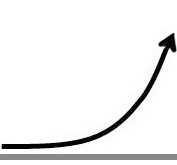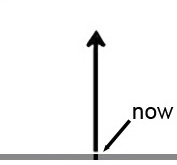Efficiency v. Decoupling
(ref. notes)
P.F. Henshaw
12/12/08
A.
Apparent sources of world policy for
'decoupling' the economies from environmental impacts by accelerating their
growth with efficiency.
a)
The Brundtland Report (World Commission on Environment and Development)
brought the concept of sustainable development to the fore in 1987, and the
concept was fundamental in discussions at the 1992 UN Conference on Environment
and Development in Rio. The Brundtland Report was premised on the argument that
poverty is caused by two processes: low levels of growth and inequity.
Sustainable development would entail economic growth with a ‘different content’
from the present, that is, growth with improved equity and distribution and
without degradation of the environment, thus decoupling growth from
environmental degradation.
b)
The general definition of sustainability that all but the OECD thought
would be the world standard going forward: "Sustainable development is
development that meets the needs of the present without compromising the ability
of future generations to meet their own needs." which turns out to be
physically unachievable with traditional exponential economic growth of
economies and the resource uses that it requires.
"Sustainable development is development that meets the needs of
the present without compromising the ability of future
generations to meet their own needs."
a)
“There was promise in the increased focus on eco-efficiency, particularly
in industry where the aim was the decoupling of economic growth from resource
use. But, the pressure on natural resources through pollution and
over-exploitation continued to be a major challenge.”
3.
OECD Observer 2001 “Decoupling environment from economic growth”. OECD,
Reporting on OECD Forum, 14th May, 2001 : The Transition to Sustainable
Development: Are We Making Progress in Decoupling Economic Growth from
Environmental Degradation?
4.
OECD, 2002 “Indicators to Measure Decoupling of Environmental Pressure
from Economic Growth” (excerpt)
http://www.oecd.org/dataoecd/0/52/1933638.pdf
a)
The term decoupling refers to breaking the link between “environmental
bads” and “economic goods.” Decoupling environmental pressures from economic
growth is one of the main objectives of the OECD Environmental Strategy for the
First Decade of the 21st Century, adopted by OECD Environment Ministers in 2001.
b)
The
OECD has made
decoupling a major focus of the work of its Environment Directorate. The OECD
defines the term as follows: The term decoupling refers to breaking the link
between “environmental bads ”and “economic goods.”
c)
“Indicators to Measure Decoupling of Environmental Pressure from Economic
Growth”,
5.
2002 from
http://www.mfat.govt.nz/Foreign-Relations/1-Global-Issues/Environment/Governance/sustainabledev.php
Ten years after the UNCED meeting, the UN convened a Summit to review progress
towards implementation of Agenda 21. The World Summit on Sustainable Development
(WSSD) took place in Johannesburg, South Africa over late August-early September
2002. The Summit reaffirmed UN members' commitment to sustainable development,
identified new priorities for action, and launched public/private partnerships
to deliver sustainable development at the sectoral level.
a)
The overarching document produced at the Summit was the Johannesburg
Declaration on Sustainable Development - a four-page text which commits to
building a “humane, equitable and caring global society cognisant of the need
for human dignity for all” and recognizes that humankind is at a crossroad,
confronting challenges of poverty, environmental degradation and loss of
biodiversity.
b)
Another key document produced at the Summit was the “Plan of
Implementation”. It provides detailed recommendations for practical action.
From New Zealand’s perspective, among the highlights are:
c)
Oceans: actions to improve oceans management: subsidy elimination; stock
restoration by 2015; Marine Protected Areas by 2012; regular oceans reporting.
d)
Energy: access; cleaner technologies; more efficiency; more renewable
energy sources; the phasing out of subsidies.
e)
Production and consumption: a new 10-year programme to decouple economic
growth from environmental degradation.
f)
Trade: trade as an engine of sustainable development; completion of the
Doha Development Agenda.
g)
Small Island Developing States: acknowledgement of the vulnerability and
needs of SIDS.
h)
Poverty, Social and Financial Outcomes: the WSSD held the line on human
rights, gender rights and labour laws and it reinforced the objectives and
outcomes of the Monterrey Conference.
i)
Water and sanitation: reaffirmation of the Millennium Development Goal to
improve access to safe drinking water by 2015 and the addition of a similar
target for sanitation.
j)
ed 3/26/13 JLH
... Five years later
the strange hope that our economy can be prompted to rely on the equivalent of
perpetual motion machines to drive an ever expanding economy (without the
physicists noticing) seems as strong as ever. It has become
the lead science policy of the UN's Environmental and Sustainability programs,
topping the science presentation for Sustainable Development Goals for its
otherwise remarkably farsighted vision of the world coming together around
serious plans to become sustainable, seen in the
UN's 2013 Sustainable Development Knowledge Base
11. UNEP speakers
lead the
International Resource Panel Decoupling Report:
"What does the
only international, independent scientific panel of experts on resource
use have to say about resource efficiency? ....the dilemma of expanding
economic activities equitably while attempting to stabilize the rate of
resource use and reducing the environmental impacts poses an
unprecedented opportunity and challenge to society."
12. UNEP's "Decoupling
Natural Resource Use and Environmental Impacts from Economic Growth"
report:
"Decoupling
human well-being from resource consumption is at the heart of the
International Resource Panel’s (IRP) mandate. It is also at the heart of
the Green
Economy Initiative of UNEP that has just produced an impressive report
on the
Green Economy (February 2011)."
Every college science
student takes an algebra course in which the strange properties of exponential
growth curves are discussed. Sometimes they're taught in middle
school geometry classes, where you learn how to construct a proof.
If you took any math you might even remember enough to prove it on your own for
homework.
13. It's a quite
simple to show, that **no matter how gradually rising at first** the area
under an exponential curve (like for the resource needs of a growing
economy) will exceed the area under ANY straight line, except for a
straight vertical line upward, representing infinite consumption immediately
at the moment you ask the question.


Curve A ...is a faster rising curve than...
Curve B
It just gets ever steeper ever faster,
making the process doing it more "efficient",
as we always keep making the economy, just keeps speeding it up!
See Inside Efficiency
for the world economic data curves showing this same natural growth property
jlh synapse9.com



